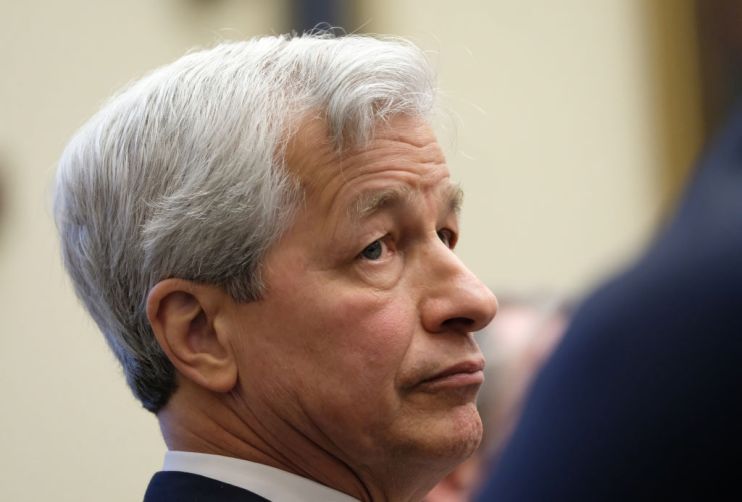Return of loan loss reserves crimp JP Morgan profits

Swelling reserves set aside to deal with a historic inflation surge raising the risk of US consumers defaulting on their debts has eroded investment banking giant JP Morgan’s profits, the firm announced today.
Net income dropped 28 per cent in the second quarter compared to the same period last year, driven by a $428m (£360m) build up of loan loss reserves.
The Wall Street giant has fortified its provisions for souring loans in response to “a modest deterioration in the economic outlook” and a rise in their loan book, it said in a trading update.
Despite the hit, JP Morgan notched profits of $8.6bn (£7.2bn) off of $30.7bn ($25.8bn).
The Wall Street titan has kicked off what is expected to be a soggy US second quarter earnings season.
Households and businesses are being squeezed by inflation in the US surging to a near 41-year high of 9.1 per cent, raising the risk of US lenders’ balance sheets being spiked by souring loans.
The US Federal Reserve has raised interest rates 50 basis points and 75 basis points at each of its last two meetings, raising debt servicing costs and squeezing mortgage affordability.
That rapid tightening campaign pushed JP Morgan’s net interest income – the difference between what banks charge borrowers and what they pay depositors – up 19 per cent.
Higher interest rates tend to boost banks as they allow them to raise rates on loans.
Wall Street thinks Fed chair Jerome Powell and co will launch a monster 100 basis point rate rise at its next meeting later this month.
The build up of loan reserves mirrors emergency actions taken during the economic downturn triggered by the Covid-19 crisis.
US and UK banks set aside billions to deal with an expected wave of defaults. Lenders have steadily released these reserves over the last year, boosting their profits.
In the second quarter of last year, JP Morgan released around $3bn (£2.5bn) of loan loss provisions, lifting profits to nearly $12bn (£10.1bn).
Jamie Dimon, JP Morgan’s chief executive and chairman, warned “high inflation, waning consumer confidence, the uncertainty about how high rates have to go and the never-before-seen quantitative tightening… are very likely to have negative consequences on the global economy sometime down the road”.
He also said Russia’s invasion of Ukraine has intensified geo-political tensions and muddied the business environment.